Herrenhäuser Konferenz "Society Through the Lens of the Digital"
#Wissenschaft und GesellschaftWie die Geistes- und Sozialwissenschaften mit den sozialen Herausforderungen der Digitalisierung umgehen, haben Fachexperten auf der Herrenhäuser Konferenz vom 31. Mai bis 2. Juni 2017 in Hannover erörtert.
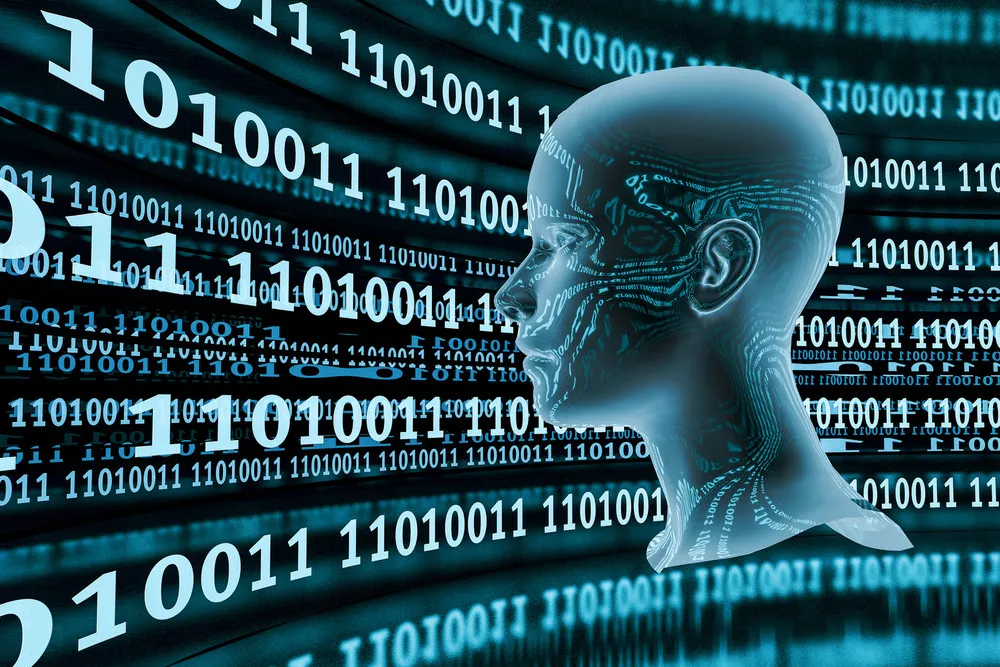
The perspectives of the social sciences and humanities on the digitization of society are the topic of this Herrenhausen Conference.
Scholars from a range of social sciences gathered in Hanover for the third in a series of conferences on the impact of digital tools and culture on scholarship, following up on the themes of "Digital Humanities" (2013) and "Big Data" (2015) hosted by the VolkswagenStiftung.
The conference "Society through the Lens of the Digital" was organized in the hopes of uniting conflicting narratives around different notions of digitization. To do so, organizers argued, scholars need to do more than merely catalog differences. They must find common ground – a shared lens, so to speak, with which to view the new developments. "If we want to observe and describe digital society," opening speaker Florian Süssenguth (acatech, Munich) said, "we cannot expect to form a clear picture or grand narrative by simply collecting different versions." In contrast to the social sciences, Süssenguth noted, the humanities have already embraced the potential of digital tools to advance empirical research. Social sciences should follow suit.
Political Turbulence: How Social Media Turn Political Mobilization Upside Down
In a digital world, Helen Margetts (University of Oxford) noted, platforms like Facebook, Twitter, and Snapchat are where we acquire political information, discuss politics, and make decisions on whether to participate in politics and increasingly where we "do" politics. On the whole, Margetts observed, social media stimulates very small acts of political participation, drawing new people into politics. And tiny acts can scale up – the demonstrations on Egypt's Tahrir Square or PODEMOS in Spain began as huge numbers of very small acts. But social media as political force comes with caveats. Digital political action has destabilizing implications for traditional politics and parties. Policymakers need to develop new approaches to this turbulence. Researchers, too, need better access to data if they are to understand the phenomenon.
Arguing that technological innovations can only be understood in context, Armin Nassehi's keynote (University of Munich), that was delivered by Florian Süssenguth, highlighted that digitization has thrown us into a fourth industrial revolution, one that hybridizes industries that once seemed straightforward: Armed with data on traffic, user preferences, fuel economy, and artificial intelligence, companies are now selling mobility, not automobiles, for example. Yet proponents of the digital society often make claims they can't fulfill. "Complex systems can't be understood causally until after the fact," he warns.
Since 1997, surveys show public trust in the US media has dropped 21 points. As the public turns away from professional media to alternative information sources, it has had consequences including the rise of alternative information sources. Looking at the US as a case study, Deen Freelon (University of North Carolina) said that for people on the political right, Fox News and Breitbart are now preferred. For people on the left, political information is often sourced from so-called "digital marginalized communities" (DMCs): Social-media based phenomena like Black Twitter. While DMCs aren't primarily about replacing traditional journalism, they also perform journalistic functions – approximating media criticism, agenda-setting, op-eds, explainers, and political commentary. As part of a large-scale study of Twitter data, Freelon is hoping to understand the key differences between DMCs and whether DMCs are autonomous or reactive to mass media agendas.
In a counter-intuitive talk, Cornelius Puschmann (Hans-Bredow-Institute, Hamburg) pushed back against the idea that social media is responsible for creating "filter bubbles" that promote societal polarization. To support his argument, he pointed out that a mere 14 percent of Americans consider social media their most important source of news, and that Europeans rely on regional newspapers and a handful of TV stations for their information. Analyzing the Facebook presence of the anti-Islamic Pegida movement as part of a data journalism project funded by the Volkswagen Foundation, Puschmann found that on the far right social media was far more popular than traditional information sources. Pegida users were fairly insular and unrepresentative of the population at large; most of the comments came from a small number of extremely active users. Social media, therefore, is not a mirror of public opinion: Small groups may exert outsize societal influence, but the public – in Germany, anyway – is more resistant to outside manipulation than commonly thought.
Commenting on the presentations, politician Jimmy Schulz (FDP) argued against an anti-hate speech law that would ask Facebook to decide whether a post is legal or illegal – rather than judges or courts. "I think we'll ruin our state if we do that," he said. What we need, he said, is a digital enlightenment: Teach our children how to use the internet and how it works, so they can make informed decisions about what they find on it. In response, Leonhard Dobusch (Freie Universität Berlin) said it's not that simple: Media literacy should acknowledge that it's a struggle to get facts right and one that potentially never ends.
Data is the world's most valuable resource. Digital evangelists promise early detection of disease outbreaks or natural disasters and dramatic extension of lifespans. Yet Christian Fuchs (University of Westminster) warns that the rise of big data must be understood in the broader context: commodification of everything as part of neoliberal ideology. Facebook and Google profit from the clicks and likes of their users, who engage in labor that does not feel like labor. And even sites that eagerly promote freedom via the "gig economy" in reality exploit their workers. A new vision of the commons, a sort of social democracy 2.0, is needed. As an aside, Fuchs lamented the colonization of the humanities and social science by computer science. "My fear is: this will result in death of theory-grounded research," Fuchs said.
In the development world, data is also making inroads. Data on developing countries and their citizens is often collected by private companies in collaboration with NGOs and government ministries and used for commercial purposes, says Laura Mann (London School of Economics). In the development community, data is often described as public good that needs to be accessed, rather than resource to be capitalized on. Meanwhile, valuable data are encouraged to flow from developing countries, which are thought to be lacking expertise, to developed countries with more knowledge. As part of the dominant ideology of doing good by selling things to the poor, corporations are monetizing the networks of non-profits. "African governments and the private sector need to be more careful and strategic about digital industrial policy and data," Mann warned.
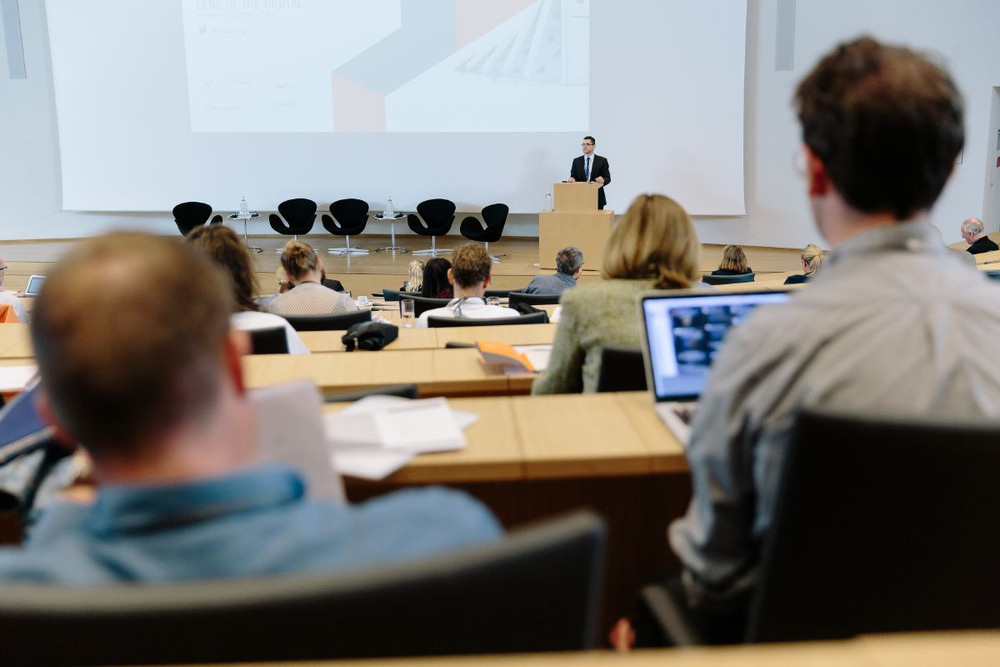
The conference was held at Herrenhausen Palace in Hannover, Germany.
Michael Vassiliadis (IG BCE, Hanover) said that amidst the excitement over "Economy 4.0," young people feel they are falling behind. While digitalization brings freedom to many, the outsourcing and gig economies can lead to commercialization and control: When everyone is a digital entrepreneur, everyone is in competition. According to Vassiliadis, digitization is a part of neo-liberalism, and neo-liberal structures might be to the disadvantage of workers. Thus, the challenge is to convince the workers of tomorrow to adopt new union structures to protect workers.
A central flaw in many discussions of the digital future is the assumption that artificial intelligence will mimic the way humans think and act. Dirk Baecker (Witten/Herdecke University) sees an opportunity for social scientists: While robots are able to exchange signals and anticipate behavior, and even participate in communication, they don't yet communicate in a human-like way. Social sciences should investigate interfaces between humans and machines to bridge this gap. Gamification, for example, provides an opportunity to look at the way man and machine relate, an opportunity that may not be available for long.
Taking the long view, Shunya Yoshimi (University of Tokyo) criticized the basis of many predictive models, which assume continuous change. In the case of big data analysis – used to model consumer behavior and power agricultural technology, among other things – a continuous data space is necessary. But a look at the historical record suggests discontinuity: Historical practices are long and discontinuous (interrupted at irregular intervals by wars and revolutions), whereas statistical prediction efforts are short and continuous (climate change, population growth). A dialogue between humanities and data science requires better understanding of long-term global history.
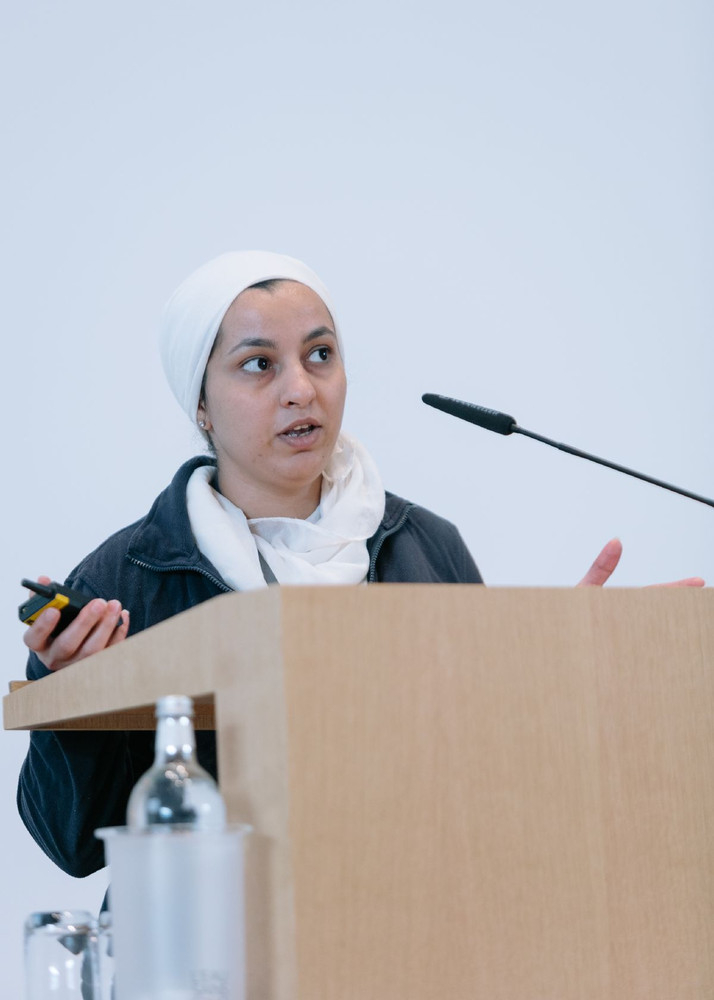
Young scientists were invited to present their research.
Munich Re's Bernhard Kaufmann looked at the risk landscape through the lens of the latest digital developments. Digital technologies have direct implications for insurance companies: Transformations driven by technology have the potential to disrupt whole industries. Can certain risks even be insured? What would be a fair price for a "cyber cover"? The "Internet of Things" promises to shake up the insurance industry, too: Equipment and machinery will no longer need to be insured, because digitally-connected devices will deliver earlier information on when things need to be repaired or serviced.
Highlighting the importance of algorithms, Elena Esposito (University of Modena) took on the "right to be forgotten" in light of digital archives and powerful search engines. "In the past, the problem of memory was the inability to remember," she pointed out. "Now the problem of the web is its inability to forget." Yet the analogies to human memory are misleading: Online, memory is not made of unlimited data, but rather the ability to focus and select relevant data. In other words algorithms enhance forgetting but don't erase memories.
Andreas Diekmann (ETH Zurich) looked at what game theory says about the interactions between buyers and sellers, and how trust works online. Reputation systems are a vulnerable public good. Analyzing online marketplaces showed that leaving feedback was a low-cost decision motivated by altruism and reciprocity. The research suggests sociology has to refine its theories, propose precise and testable hypotheses, and pay attention to techniques of collecting and analyzing digital data.
To better understand how data was changing the way people lived, Deborah Lupton University of Canberra) focused on examples of people using digital devices to monitor, quantify and track their daily activities and their physical performance. Self-tracking gave some study participants a sense of achievement and a feeling of being in control. Others said data made them more aware of their bodies, for example in the case of diabetes. But they had little concern when it came to their data privacy or security. Self-trackers in the general population were less likely to share data and more likely to be overwhelmed – because, perhaps, they were tracking to manage a chronic illness.
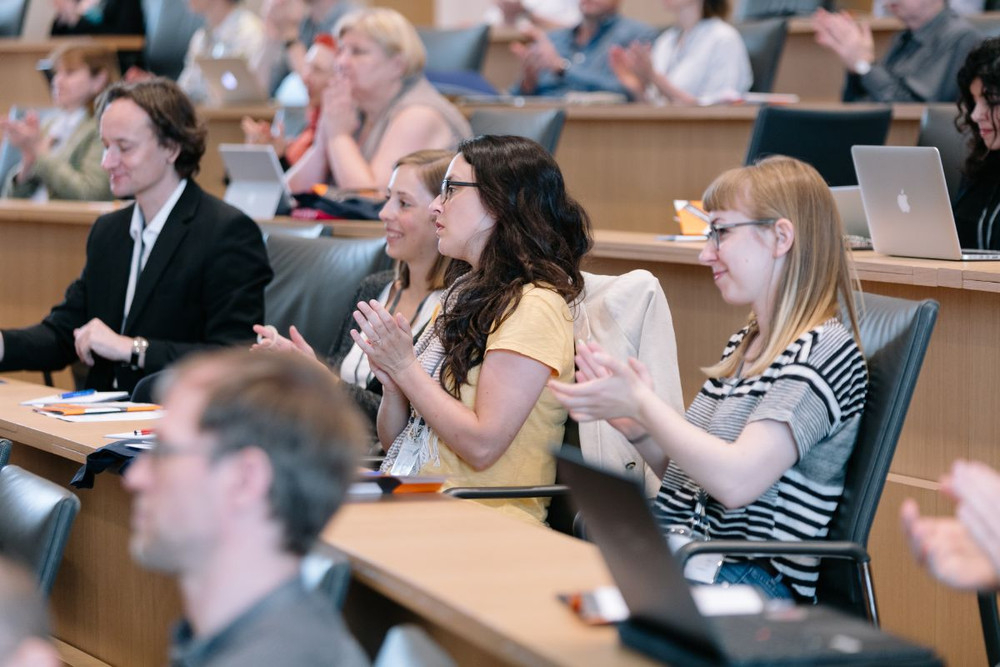
Lively discussions followed diverse talks.
Facebook and others are therefore becoming important tools of human self-expression, according to Jos de Mul (Erasmus University Rotterdam). That means that the platform's database and "timeline" are important determinants of how you tell your own life story, and at the same time they are dependent on the commercially-driven algorithms of Facebook and other services. Yet while Facebook encourages users to express all aspects of life on the platform, this complete disclosure has drawbacks and makes people vulnerable to data mining and profiling.
Christopher Anderson (City University of New York) looked at the beleaguered press in his lecture on the history of data journalism in the US. Over time, journalists believe, the media has gotten better, in part because of how it uses data. "Journalism has become more certain about what it knows, and that may not be an unalloyed good for democracy, even if it is good for journalism as a profession," Anderson said. Meanwhile, the US is developing empirical tribes of voters with an aesthetic resistance to data. Just as journalists become more convinced their presentation and methods are on the right course, large parts of the public see analysis of journalists as elite discourse that doesn't speak to them. To address this gap, journalism should be more open – in scientific tradition – about what it doesn't know.
Datafied journalism – from maps and graphics based on large data sets to investigative endeavors like the Panama Papers project – is a reflection of an increasingly datafied society, said Wiebke Loosen (Hans-Bredow-Institute, Hamburg). Often seen as future of journalism, in the profession as well as in academe, its key characteristics include large sets of quantitative data as raw material, visualization, and open source or crowdsourced data sets. The trend has helped algorithms permeate the business: They help in finding topics, fact checking, and distribution of news. Professional journalism and algorithmically-generated information are interwoven and interrelated, and analysis shows there are no stable trends.
There are reasons to be cautious: Most stories Loosen looked at rely on data released by official institutions (in that sense the Panama Papers were an outlier). Christian Stoecker (Hamburg University of Applied Sciences) voiced a further concern, pointing out that the many Panama Papers stories were highly acclaimed but yielded few concrete results. "All journalists don't need to be data journalists. He said. "To get the truth out and reach an audience, you need people."
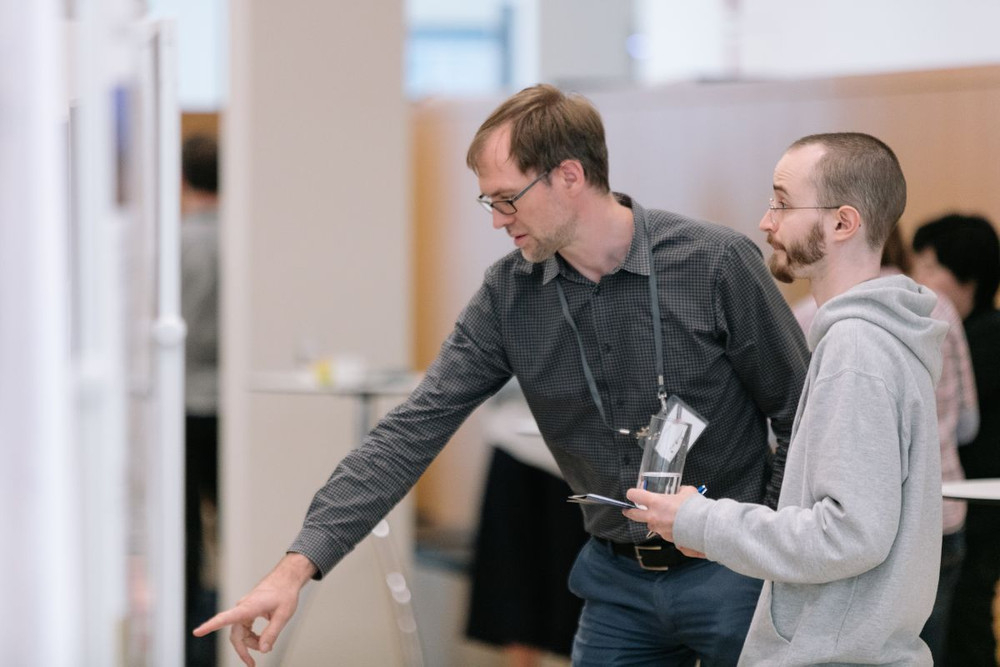
Several poster sessions framed the presentations.
Eva Stenskoeld (Riksbankens Jubileumsfond, Stockholm) said that data would bring changes to how academics seek funding and publish their work. As part of the open science movement, access to data is vital. And the entanglement of humanities and hard sciences as part of a wider digital transformation will ultimately lead to changes in how funding organizations can support research, and to changed governance. Open access, for example, may one day mean that rather than paying to read you'll have to pay to publish.
In the end, the conference's presentations made clear that data can be a tremendously valuable tool for social scientists of all stripes, provided it is paired with solid theoretical and historical awareness. From journalism to development economics, data alone can be dangerously easy to misuse; the unpredictability of human behavior is a poor fit for a purely data-driven approach. This is at once a challenge and an opportunity for social science, which has long sought to find new ways to understand and explain how societies tick. It's also important to incorporate the humanistic elements of social science into the increasingly data-driven ways we interact with each other and ourselves, e.g. through online platforms and search algorithms.
All academic titles have been omitted.
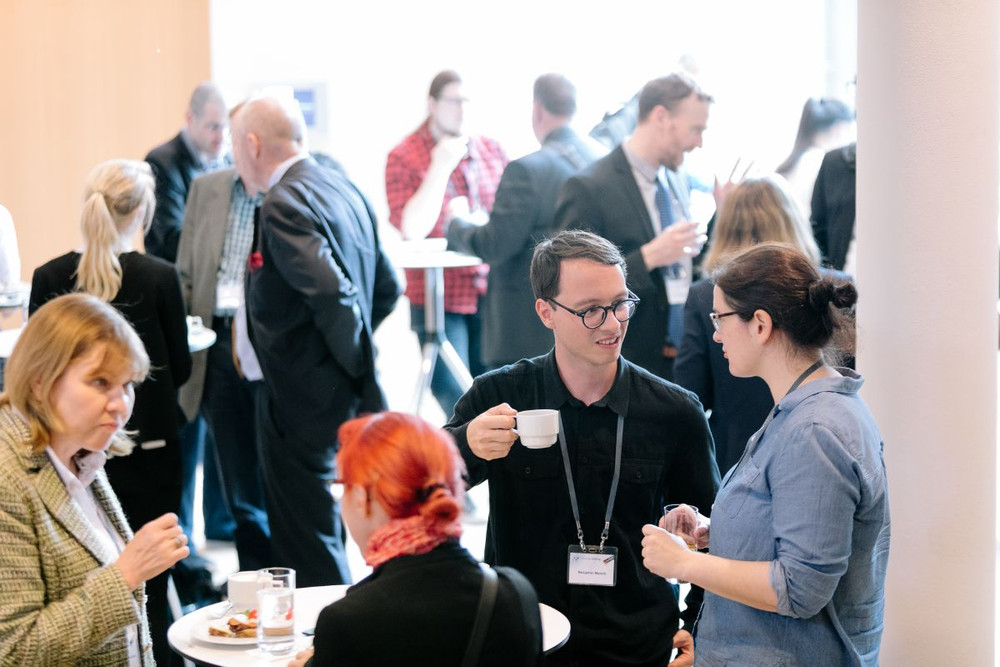
Networking between the participants is an important part of Herrenhausen Conferences.
Organization
Volkswagen Foundation in collaboration with Prof. Dr. Armin Nassehi, University of Munich, Germany, Florian Süssenguth, acatech, Germany, Dr. Cornelius Puschmann, Hans-Bredow-Institute Hamburg, Germany
Speakers and Session Chairs included
Christopher Anderson (New York, USA), Dirk Baecker (Witten/Herdecke, Germany), Michael Bültmann (Berlin, Germany), Andreas Diekmann (Zurich, Switzerland), Leonhard Dobusch (Innsbruck, Austria), Elena Esposito (Modena, Italy), Christian Fuchs (London, UK), Mary L. Gray (Bloomington, USA), Deen Freelon(Washington, USA), Andreas Hepp (Bremen, Germany), Lorena Jaume-Palasí (Berlin, Germany), Bernhard Kaufmann (Munich, Germany), Wilhelm Krull (Hanover, Germany), Wiebke Loosen (Hamburg, Germany), Deborah Lupton (Canberra, Australia), Laura Mann (London, UK), Helen Margetts (Oxford, UK), Sophie Mützel(Lucerne, Switzerland), Jos de Mul (Rotterdam, The Netherlands), Ortwin Renn(Potsdam/Munich, Germany), Ralph Schroeder (Oxford, UK), Jimmy Schulz (Berlin, Germany), Eva Stensköld (Stockholm, Sweden), Michael Vassiliadis (Hanover, Germany), Shunya Yoshimi (Tokyo, Japan)
